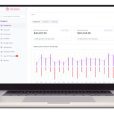Say what you will about eating healthier, saving money and being more eco-conscious, but there’s just something about fried chicken that dispels any need to be a “better” consumer.
New Zealand-based fast food restaurant company Restaurant Brands (ASX: RBD) is a testament to that. With total sales for the first quarter to March 31, 2023, increasing to $308.6 million, the Company—which owns KFC, Taco Bell, Pizza Hut and Carl’s Jr brands in Australia—-is making a case for Aussies’ appetite for fast food.
Its sales witnessed a 12% increase, i.e. $33.2 million, over last year. Sales recovered from the impacts of the 2022 COVID-19 Omicron outbreak and price increases were implemented across all markets.
Sales shot up due to 12 new stores opening and stronger US and Australian currencies compared to the previous year. However, inflation is still affecting the Company’s profits even though it has raised prices to compensate for the increased costs. In 2022, the reported net profit after tax was $32.1 million, a decrease of $19.8 million from the previous year due to the negative effects of inflation.
In the March quarter, New Zealand’s sales reached $129.4 million, a total increase of 9.2%. Sales increased for all brands, mostly due to price hikes and the reduction of pandemic-related restrictions on trade. The number of stores remained the same at 143, the same as in the fourth quarter of 2022.
Meanwhile, Australia’s sales totalled $67.9 million, representing a 15.5% increase in local currency. Same-store sales increased by 11.2%. Sales at the mall and in-line inner-city stores have rebounded to levels close to those seen before the COVID-19 pandemic. The number of stores remained steady at 83.
As for its US arm, sales in Hawaii reached $58.2 million, an overall increase of 9.3% and a same-store increase of 1.0% in local currency. Trading in Hawaii has remained stable at the high levels achieved last year, and the new stores opened in the previous year have been performing well. The number of stores in Hawaii remained steady at 75 throughout the quarter.
In California, its sales were $41.14 million, which represents a total increase of 0.3%. However, there was a 4.0% decrease in same-store sales in local currency. This drop in same-store sales is due to customers moving towards cheaper menus and promotional items. The number of stores in California remained steady at 75.
Just before the pandemic, in 2019, Restaurant Brands brought Taco Bell to Australia. Taco Bell’s sales in New Zealand doubled in 2022 despite having only three stores. The brand launched an e-commerce website that enables customers to place orders online.
With a thriving fast food demand, even in the face of rising inflation, people are all but convinced that fast food is a lifestyle, not an excess expenditure. The Company’s same-store sales in New Zealand are up by nearly 8% after suffering a decline in 2022. What’s more, in Australia, while its same-store sales have changed by 9.6%, the total store sales have shot up by 16.8% to $73.7 million.
Despite the uncertain demand in the US which faces stiffer competition, Restaurant Brands is experiencing robust growth in Australia and New Zealand, with no apparent signs of slowing down.
- Ovanti’s iSentric signs contracts worth $14.4m with Malaysian commercial bank - June 27, 2024
- Baby Bunting fights back from retail downturn with 5-year strategy, includes Gen-Z focus and self-funded growth - June 27, 2024
- CLEO meets with US FDA to develop strategy for ovarian cancer test launch - June 26, 2024













Leave a Comment
You must be logged in to post a comment.